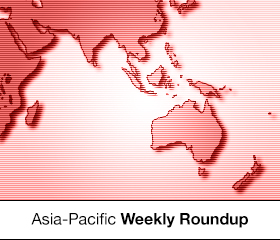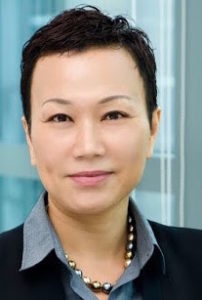Teads Raises £36.3m for Asia Expansion; Amnet Programmatically Targets LinkedIn APAC Audience


In this weekly segment, ExchangeWire sums up key industry updates on ad tech from around the Asia-Pacific region – and in this edition: Teads raises £36.3m for Asia expansion; Amnet programmatically targets LinkedIn APAC audience; Majority of APAC consumers unhappy with digital experience; Japan toughest to engage with video ads; Unruly opens Singapore video lab; and Criteo hires APAC MD.
Teads raises £36.3m for Asia expansion
The outstream video platform says it has secured €43m (£36.3m) in new debt financing to grow its presence in the Asian region and acquire companies that will bolster its footprint in the video advertising market.
The funds were raised from several banks including BNPP, Bank of China, HSBC, and BPI. Teads Executive Chairman Pierre Chappaz said: "I am very pleased to see that banks are supporting our strategy to pursue M&A (merger and acquisition) opportunities. […] This financing demonstrates the trust they have in Teads' management capability to keep the right balance between growth and profitability."
The company said it was targeting acquisitions that might include smaller ad tech startups with technologies that it could leverage to beef up its services to publishers and advertisers.
It also revealed plans to expand into Southeast Asia this year and China in 2017, with former MEC China President Christian Guinot joining Teads to lead the company's Asian operations from its new office in Singapore.
Teads co-founder and CEO Bertrand Quesada said: "We already have a strong presence in all major American and European markets, and in Japan. It is now time for us to become more deeply entrenched in the Asian markets, solidifying our worldwide operations to best serve our customers, brands, agencies, trading desks, and publishers."
Amnet programmatically targets LinkedIn APAC audience
The Dentsu Aegis Network agency has signed an agreement with LinkedIn to tap the latter's professional network in Asia-Pacific and enable its clients to target specific audiences programmatically.
The partnership also would provide access to LinkedIn's exclusive curated segments, said Amnet, which recently launched its premium programmatic inventory marketplace for the region.
Amnet Asia's regional managing director Anna Chan said: "Programmatic advertising is evolving and growing very rapidly, and we're seeing more advertisers shifting budgets from open exchanges to private marketplaces. Amnet is working very closely with key publishers and media owners to understand the value of their content, data, and environment to which the user is being exposed."
The agency's publisher development lead, Mandar Kambli, added that the partnership with LinkedIn was part of its efforts to identify publishers that could "deliver the message to our desired audiences more effectively".
Majority of APAC consumers unhappy with digital experience
Some 65% of consumers in the Asia-Pacific region said they were not delighted with their digital experience, with 13% among these choosing to remain loyal to the brand.
These findings were from SAP's Asia-Pacific Japan Digital Experience Report, which analysed responses from nearly 19,000 consumers across 10 countries who assessed more than 46,500 digital interactions with more than 700 brands in the region. Respondents rated their digital experience against 14 attributes such as engagement, personalisation, responsiveness, and security.
According to the report, respondents who were happy with their digital experience were at least 5.5 times more likely to remain loyal to a brand, compared to those who were not.
The study also found a correlation between consumers' willingness to divulge personal information and higher satisfaction with their digital experience. For instance, 55% of delighted consumers would reveal their buying preferences, compared to 12% of those who were unhappy with their digital experience. Another 49% of happy consumers would disclose their social media usage, compared to just 8% of unhappy respondents.
This was especially true of respondents in Southeast Asian markets, compared to their peers in Australia, New Zealand, South Korea, and Japan, according to the report.
SAP Asia-Pacific and Japan President Adaire Fox-Martin said: "It is Asia's moment for digital. The connection between the digital experience and business outcomes, particularly customer loyalty and advocacy, highlights the urgency at which brands in the region must drive the digital experience to thrive in the digital economy.
"Failure to do this will see brands left behind by new, non-traditional players prepared to seize the opportunity and deliver digital experiences that delight", Fox-Martin said.
Japan toughest to engage with video ads
Consumers in Japan apparently are the most difficult to engage emotionally through video advertising, reveals data from Unruly Pulse.
The new dashboard, currently in beta launch, from Unruly analyses emotional and brand trends based on more than 750,000 consumer responses to thousands of video ads.
Its global data indicated that Japanese and Nordic audiences showed the weakest emotional reactions, with only 5% of consumers in Japan experiencing happiness when watching video ads.
Those in emerging markets, such as India, Mexico, and Brazil, showed stronger emotional responses to branded video. Audiences in Thailand, Indonesia, and the Philippines also were three times more likely to have an emotional reaction to video ads than their counterparts in Singapore.
Data from Unruly Pulse further revealed that Japanese consumers were more likely to have a strong emotional response to video ads as they aged.

Unruly co-CEO Sarah Wood said: "Consumer emotions drive product sales, as well as brand love, so it's not surprising that smart marketers appreciate the important role that emotional intelligence has to play in delivering effective video ad campaigns."
Unruly opens Singapore video lab
In a separate announcement, the video ad platform says it has opened a video lab in Singapore aimed at helping brands and publishers "harness the power of emotions" and create appropriate content to address increasing use of ad blocking tools.
Citing its own research, Unruly said 90% of consumers in Asia-Pacific would consider using ad blocking software to reduce online ad clutter and filter those they deemed "creepy".
The ad tech vendor added that its new video lab would offer brands and agencies customised, real-time data to help them create ads that were more likely to better engage their target audience. It also would demonstrate targeting and distributing strategies to aid marketers in pushing ads that could hold consumer attention.
In addition, the lab would help publishers and programmatic media buyers adopt "polite ad formats" and mobile-first strategies, as well as deliver better user experiences. It would showcase best practices based on the vendor's viewable video SSP, UnrulyX.
Unruly Asia-Pacific chief commercial officer Phil Townend said: "The rise in ad blocking is an existential threat to the future of the digital advertising ecosystem; and, unless brands and publishers wake up to this threat, they risk alienating consumers for good."

Yvonne Chang, Criteo's Asia-Pacific executive managing director
Criteo hires APAC MD
The performance marketing tech vendor has appointed Yvonne Chang as its executive managing director for Asia-Pacific, where she will be responsible for operations in Australia, China, India, Japan, Singapore, and South Korea.
Chang also would drive new business development and expand existing advertiser and publisher relationships across Hong Kong, Indonesia, Malaysia, Taiwan, Thailand, Vietnam, and the Philippines.
The executive previously was president of Taiwanese media company, Eastern Broadcasting, and also spent more than a decade with Yahoo, where her most recent role was vice president of advertising solutions for Asia-Pacific and managing director for India and Southeast Asia.
Chang said: "Driven by an exponential increase in smartphone penetration, Asia-Pacific is currently the world's largest retail e-commerce market and second-largest travel e-commerce market. With such a healthy outlook, and the diverse regional landscape, I look forward to working with some of the best talent in the industry to take Criteo to its next level of growth."
AdvertiserAgencyAPACMedia SpendProgrammaticPublisherSingaporeSocial MediaTargetingVideo








Follow ExchangeWire